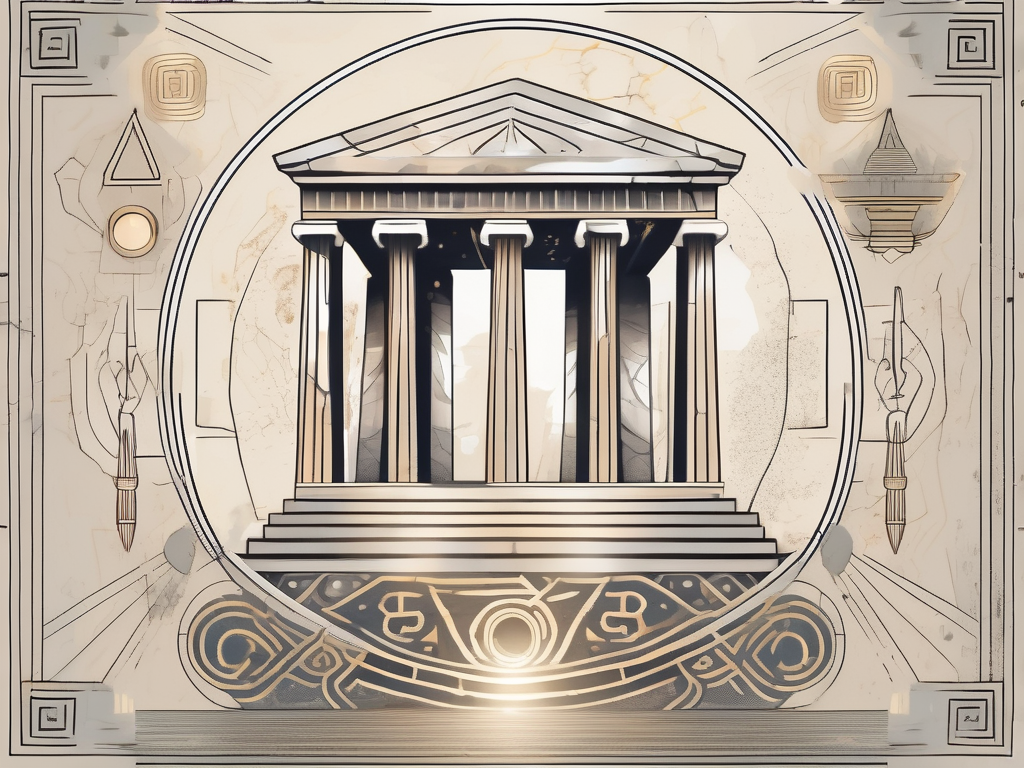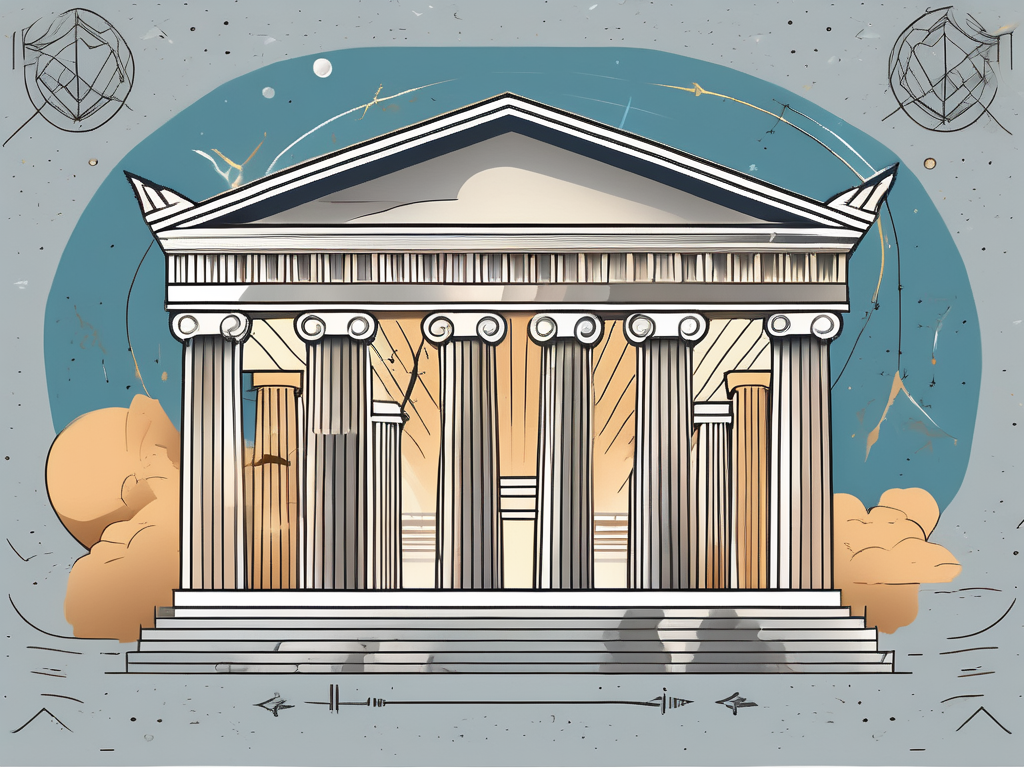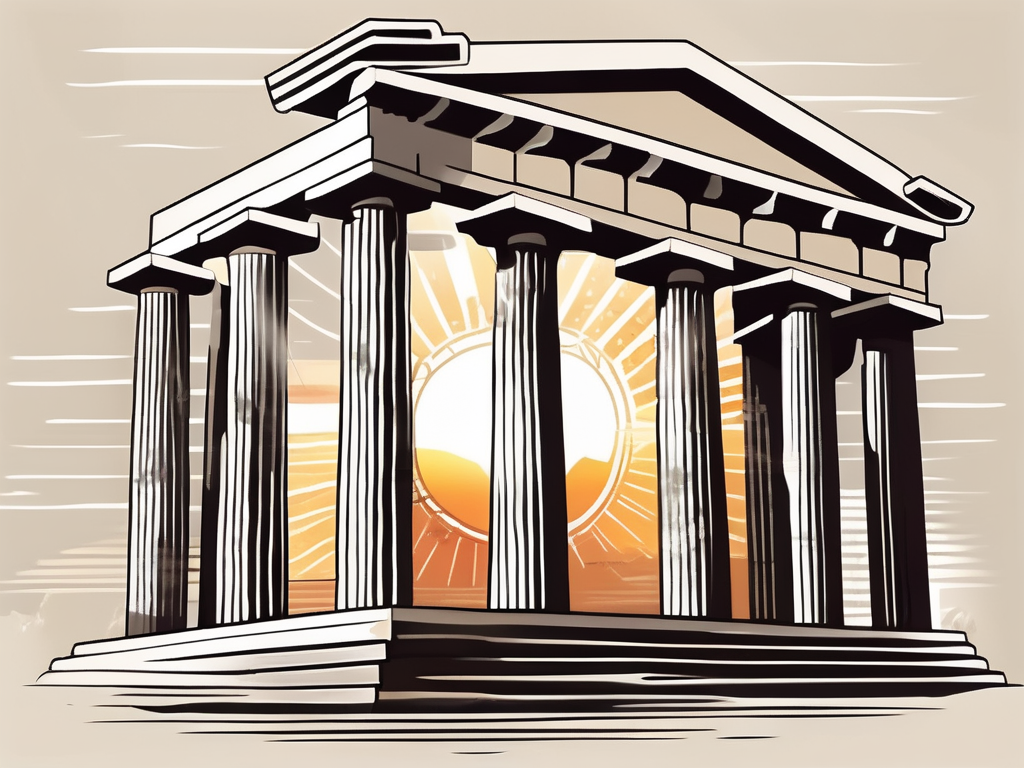Welcome to the fascinating world of Greek mythology, where gods and goddesses reign supreme, and their tales continue to captivate our imagination. One such mythical figure is Phosphorus, the Greek god of light, whose enigmatic tales have been passed down through generations. In this article, we will delve into the origins, symbolism, literary and artistic depictions, as well as the enduring legacy of Phosphorus in modern culture.
Understanding the Origins of Phosphorus
Before we explore the tales of Phosphorus, let’s uncover the intriguing origins of this deity. According to Greek mythology, Phosphorus was the child of Astraeus, the Titan of Dusk, and Eos, the Titaness of the Dawn. Born at the break of dawn, Phosphorus was believed to herald the arrival of the sun each day, illuminating the world with his radiant light.
Phosphorus was known by different names in different regions. The Romans referred to him as Lucifer, which translates to “Light Bringer”. Regardless of the name, Phosphorus embodied the essence of light and all its transformative powers.
The Birth and Parentage of Phosphorus
Legend has it that Astraeus and Eos conceived Phosphorus during one of their celestial encounters. Eos, captivated by Astraeus’ mystique, was drawn to him, resulting in the conception of Phosphorus. Thus, Phosphorus inherited the combined forces of light and darkness, becoming an extraordinary deity who symbolized the delicate balance between day and night.
Phosphorus’ birth was considered a significant event in Greek mythology as it marked the beginning of a new day, representing optimism, renewal, and hope. As the torchbearer of sunlight, Phosphorus embodied the cyclical nature of life, casting away the shadows and illuminating the path ahead.
Phosphorus in Greek Mythology: An Overview
In Greek mythology, Phosphorus held a prominent role alongside other gods and goddesses. He was often depicted as a young and handsome deity, with a radiant glow encircling his form. According to ancient legends, Phosphorus had the ability to light up the heavens and bring forth the sun, awakening the world from its slumber.
Phosphorus’ presence in Greek mythology was not limited to his role as the morning star. He was also associated with the gentle breeze that accompanied the arrival of dawn, whispering promises of new beginnings to all who heard its delicate murmur. The harmonious combination of light and wind created an ethereal atmosphere, where dreams and reality intertwined.
As the morning star, Phosphorus was revered as a guide and protector. Sailors would look to the horizon, seeking the first glimpse of his radiant light, knowing that his presence signaled safe passage and a new day filled with possibilities. Farmers would offer prayers to Phosphorus, hoping for his blessings to ensure bountiful harvests and abundant growth.
Phosphorus’ influence extended beyond the mortal realm. The gods and goddesses themselves recognized his importance and sought his favor. Zeus, the king of the gods, would often call upon Phosphorus to announce the beginning of important gatherings and celestial events. Phosphorus’ radiant light would pierce through the darkness, drawing the attention of all, and setting the stage for the grandeur that was to follow.
Throughout Greek mythology, Phosphorus remained a symbol of hope and enlightenment. His presence served as a reminder that even in the darkest of times, there is always a glimmer of light, a beacon of possibility. Whether as the morning star or the gentle breeze, Phosphorus embodied the beauty and power of the natural world, inspiring awe and wonder in all who encountered him.
The Symbolism and Powers of Phosphorus
To fully comprehend the significance of Phosphorus, we must explore the symbolism and powers attributed to this mythical deity. As the god of light, Phosphorus symbolized enlightenment, knowledge, and inspiration. His radiance not only banished darkness but also illuminated the minds of humans, sparking creativity and awakening intellect.
Phosphorus, also known as Eosphorus, was a celestial being whose influence extended far beyond his role as the god of light. In Greek mythology, he played a vital role in bridging the gap between the mortal world and the celestial realm. As the harbinger of the sun, Phosphorus ignited the hope within people’s hearts, infusing them with a renewed sense of purpose and optimism.
Phosphorus’ divine presence was believed to inspire poets, philosophers, and artists, filling them with creative energy and guiding their creations. His ethereal light was a catalyst for the birth of masterpieces, as it awakened the dormant potential within individuals and allowed their imaginations to soar to new heights.
But Phosphorus’ influence was not limited to the realm of art and creativity. He also inspired individuals to seek enlightenment and understand the deeper meaning of life. His light served as a guiding beacon, illuminating the path towards self-discovery and spiritual growth. Those who sought his guidance were granted visions and insights, enabling them to unravel the mysteries of the universe and gain a deeper understanding of their own existence.
Furthermore, Phosphorus was revered as a protector, ensuring the safe passage of travelers during the night. His light acted as a guiding beacon amidst the darkness, warding off fear and offering reassurance to those in need. Sailors and explorers would look up in awe, with hearts filled with gratitude whenever they caught a glimpse of Phosphorus’ ethereal light, knowing that they were not alone in their journey.
Phosphorus’ powers were not limited to the physical realm; he also possessed the ability to ignite the fire of inspiration within the hearts of individuals. His divine influence could be felt in the moments of epiphany, when a new idea takes shape or a breakthrough occurs. It is in these moments that Phosphorus’ presence is most palpable, as he guides the creative process and infuses it with his radiant energy.
As the god of light, Phosphorus embodied the duality of existence. Just as light cannot exist without darkness, Phosphorus’ powers were intertwined with the shadows. It was through his light that the darkness was banished, but it was also within the darkness that his radiance shone brightest. This paradoxical nature made Phosphorus a symbol of balance and harmony, reminding humanity of the delicate equilibrium that exists in the universe.
In conclusion, Phosphorus’ symbolism and powers were as vast as the cosmos itself. From inspiring creativity and enlightenment to guiding lost souls and protecting travelers, his influence touched every aspect of human existence. As we bask in the light of a new day, let us remember the profound impact that Phosphorus has had on our lives and continue to seek his guidance in our pursuit of knowledge, inspiration, and spiritual growth.
Phosphorus in Greek Literature and Art
Throughout history, Phosphorus has inspired countless writers, poets, and artists to capture his essence in their creations. Ancient Greek literature is replete with references to Phosphorus, often depicting him as a divine figure who bestows his blessings upon mortals.
Depictions of Phosphorus in Ancient Greek Literature
One notable instance of Phosphorus’ presence in Greek literature can be found in the epic poem “The Odyssey,” written by the revered poet Homer. In this timeless tale of adventure, Phosphorus is referenced as the guiding light that leads lost sailors back to their homelands, symbolizing hope and the promise of reunion.
Other ancient Greek authors also paid homage to Phosphorus, portraying him as the muse from whom they draw inspiration. Poets and philosophers often sought his favor, hoping that his radiant light would illuminate their words and grant them the wisdom they sought.
Artistic Representations of Phosphorus
The visual arts have also been influenced by the allure of Phosphorus, with numerous ancient Greek artworks dedicated to capturing his radiance. Artists would often depict Phosphorus as a young, ethereal figure, surrounded by an incandescent glow. These portrayals aimed to convey his divine and celestial qualities, inviting viewers to bask in the beauty of his luminescence.
From sculptures and pottery to murals and mosaics, the legacy of Phosphorus’s artistic representations can be found throughout ancient Greek artifacts. These masterpieces immortalize the god of light and remind us of his everlasting presence in human culture.
The Legacy of Phosphorus in Modern Culture
Even in our contemporary world, the influence of Phosphorus can be felt in various forms of art, literature, and popular culture. His legendary tales continue to resonate with artists, authors, and individuals seeking a glimpse into the divine.
Phosphorus in Contemporary Literature and Media
In the realm of literature, Phosphorus has inspired modern authors to create captivating stories that explore the themes of enlightenment, hope, and the pursuit of a higher purpose. His symbolic presence often serves as a catalyst for personal growth and inner transformation, reminding readers of the power that lies within them.
In the world of media and cinema, Phosphorus’ enigmatic tales have been adapted and reimagined, capturing the hearts of audiences worldwide. Whether as a central figure or a subtle reference, his presence continues to add depth and meaning to contemporary narratives.
The Influence of Phosphorus on Modern Mythology and Symbolism
Phosphorus’ influence extends beyond literature and entertainment; it has permeated various aspects of modern mythology and symbolism. Many still draw inspiration from the god of light, awakening their own inner creativity and seeking enlightenment in a world shrouded in shadows.
In popular culture, the image of Phosphorus persists as a symbol of hope and guidance. His light continues to inspire individuals to embark on their own personal journeys, illuminating their paths and leading them towards their true destinies.
In conclusion, the mythical tales of Phosphorus, the Greek god of light, have endured throughout history, leaving an indelible mark on ancient literature, art, and contemporary culture. His enigmatic aura and transformative powers continue to fascinate and inspire, reminding us of the eternal beauty and symbolic significance of light. Just as the sun rises each morning, Phosphorus’ legacy illuminates our minds and hearts, guiding us towards a brighter tomorrow.












